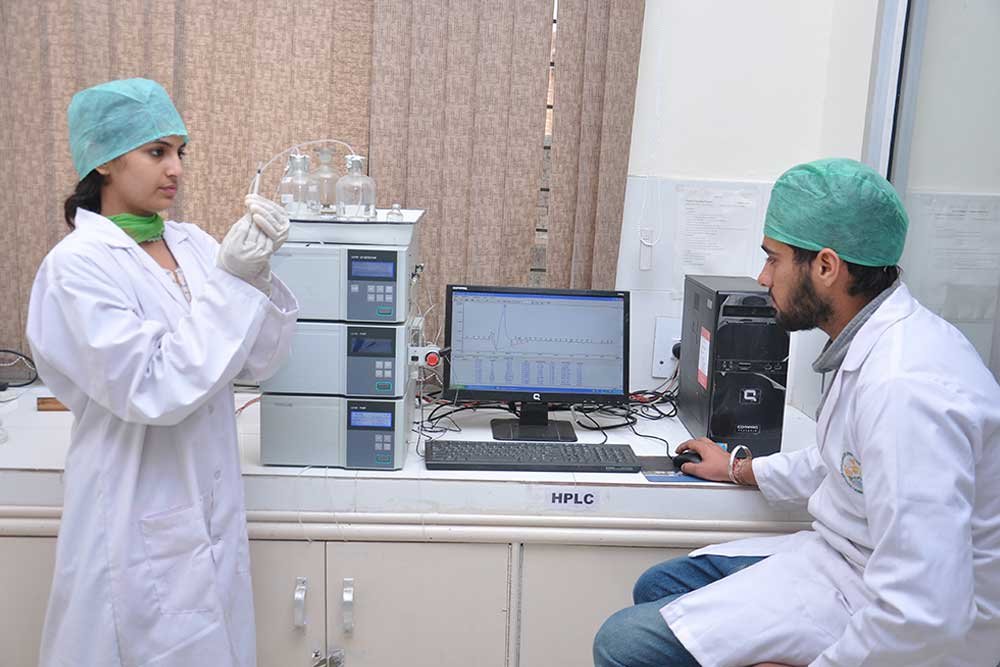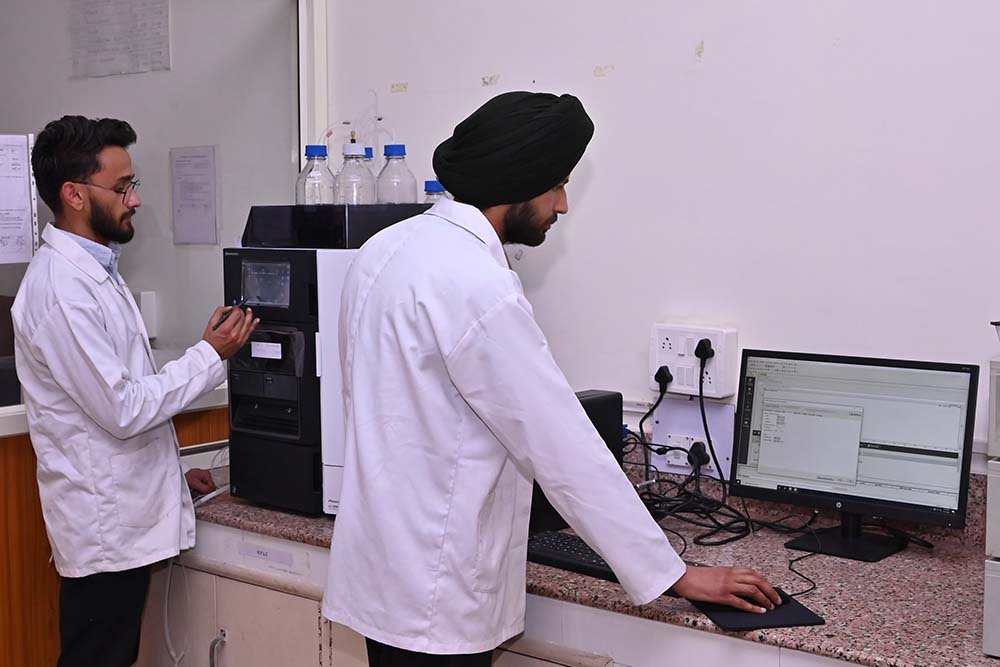Khalsa Testing Center
- Home
- Khalsa Testing Center
Khalsa Testing Center
Khalsa Testing Center (KTC) is a specialized facility dedicated to conducting various tests and analyses on pharmaceutical products. KTC play a crucial role in ensuring the safety, efficacy, and quality of drugs and pharmaceutical products before they are approved for use by patients.
Here are some key aspects of a Khalsa Testing Center:
- Quality Control and Assurance: KTC are responsible for evaluating the quality of pharmaceutical products. KTC performs tests to ensure that drugs meet established quality standards and specifications.
- Safety Testing: Safety is a paramount concern in pharmaceuticals. KTC conducts tests to assess the safety of drugs, including toxicity studies, to identify potential side effects or harmful effects on the human body.
- Efficacy Testing: KTC evaluates the efficacy of drugs to determine if they produce the intended therapeutic effects. This involves conducting clinical trials, in vitro studies, and other testing methods.
- Chemical Analysis: KTC performs chemical analyses to identify and quantify the active pharmaceutical ingredients (APIs) in drug formulations. They also check for impurities and degradation products.
- Stability Testing: Pharmaceuticals must remain stable over their shelf life. KTC conducts stability testing to assess how a drug’s quality and efficacy change over time under various storage conditions.


- Microbiological Testing: Some drugs may be susceptible to microbial contamination. KTC performs microbiological testing to ensure that pharmaceutical products are free from harmful microorganisms.
- Formulation Analysis: KTC analyzes the formulation of drugs to ensure that they are manufactured according to the prescribed formula and that the dosage forms (tablets, capsules, injections, etc.) meet the required specifications.
- Analytical Method Development: KTC develop and validate analytical methods for testing pharmaceutical products. These methods are critical for accurate and reliable analysis.
- Regulatory Compliance: KTC adheres to strict regulatory guidelines and standards.
- Research and Development: KTC also engages in research activities to develop new testing methods, improve existing processes, or investigate new drug formulations.
- Contract Services: Many pharmaceutical companies outsource their testing needs to specialized labs, which offer contract testing services. KTC also provides consulting and advisory services related to drug development and testing.
KTC is equipped with a wide range of specialized instruments and equipment to perform various tests and analyses on pharmaceutical products. These instruments are essential for ensuring the safety, efficacy, and quality of drugs.
Here are some of the common types of equipment available in KTC
- High-Performance Liquid Chromatography (HPLC): Twp HPLCs are present in the lab, one autosampler of Shimadzu and second of Cyberlab.
HPLC systems are used to separate, identify, and quantify the individual components of pharmaceutical formulations. They are especially useful for analyzing the concentration of active pharmaceutical ingredients (APIs) and detecting impurities. - Gas Chromatography (GC): (Make: Agilent) GC instruments are used for the analysis of volatile compounds, such as residual solvents, in pharmaceutical products. They are also employed for purity and impurity testing.
- Differential Scanning Calorimetry: (DSC) is a powerful analytical technique used in various fields, including chemistry and materials science.
- UV-Visible Spectrophotometer: UV-Vis spectrophotometers measure the absorbance of light by a sample at different wavelengths. They are commonly used to determine the concentration of analytes in pharmaceutical samples.
- Fourier-Transform Infrared (FTIR) Spectrometer: FTIR instruments are used to identify and analyze chemical compounds based on their infrared absorption spectra.


- Dissolution Tester: Dissolution testing equipment assesses the rate at which solid dosage forms (e.g., tablets and capsules) dissolve in a specified solvent.
- Microbiological Incubators: These incubators provide controlled temperature and humidity conditions for microbiological testing, including sterility testing and microbial limit testing.
- Stability Chambers: Stability testing equipment simulates various environmental conditions (e.g., temperature and humidity) to assess the long-term stability of pharmaceutical products.
- Spectrofluorometer: Spectrofluorometers measure the fluorescence emitted by a sample when exposed to specific wavelengths of light. They are used in fluorescent-based assays and analyses.
- Titrators: Titrators automate the process of titration, which is used to determine the concentration of substances in a solution. They are valuable for acid-base and complexometric titrations.
- Fume Hoods: Fume hoods provide a controlled environment for handling and preparing chemical compounds, ensuring the safety of lab personnel.




